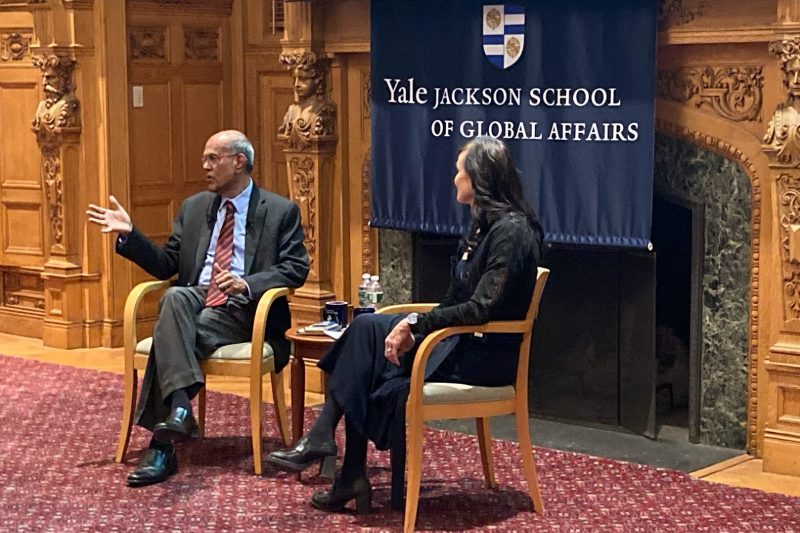On November 29, the Jackson School of Global Affairs hosted a conversation with Duvvuri Subbarao, former governor of the Reserve Bank of India, on dilemmas in central banking in emerging market economies. Sigridur Benediktsdottir, senior lecturer and assistant dean for undergraduate education at the Jackson School, moderated the conversation.
Subbarao began by discussing his leadership of India’s Reserve Bank through the 2008 Global Financial Crisis, outlining the challenges that emerging economies face in establishing credibility, managing monetary policy, stabilizing the exchange rate, and managing communication. “These are challenges even in normal times—these challenges become particularly acute in crisis times, and even more particularly acute for emerging economies,” he said.
Subbarao explained that emerging markets face the uphill battle of establishing credibility. While central banks and governments in developed economies often work together to overcome a crisis, in emerging economies, the reserve bank must act independently from the government to establish credibility, he said.
Subbarao then examined the challenges of managing monetary policy in emerging markets, highlighting the importance of price stability in fostering a predictable economic environment, combating inflation, and reducing inequality. He explained that central banks, especially in emerging markets, face the critical dilemmas of balancing several economic tensions: between growth and inflation, savers and borrowers, and prince stability and exchange rate.
“My biggest challenge has been stabilizing the exchange rate,” Subbarao said, discussing the inherent volatility in emerging markets and the instruments central banks use to stabilize the exchange rate.
He emphasized the importance of communication in central banks. He recalled his mistakes in managing the central bank response to the 2013 taper tantrums, where his mixed messaging damaged market confidence.
“Markets pay very close attention to what central banks say,” Subbarao explained. “They analyze every word, every nuance.”
